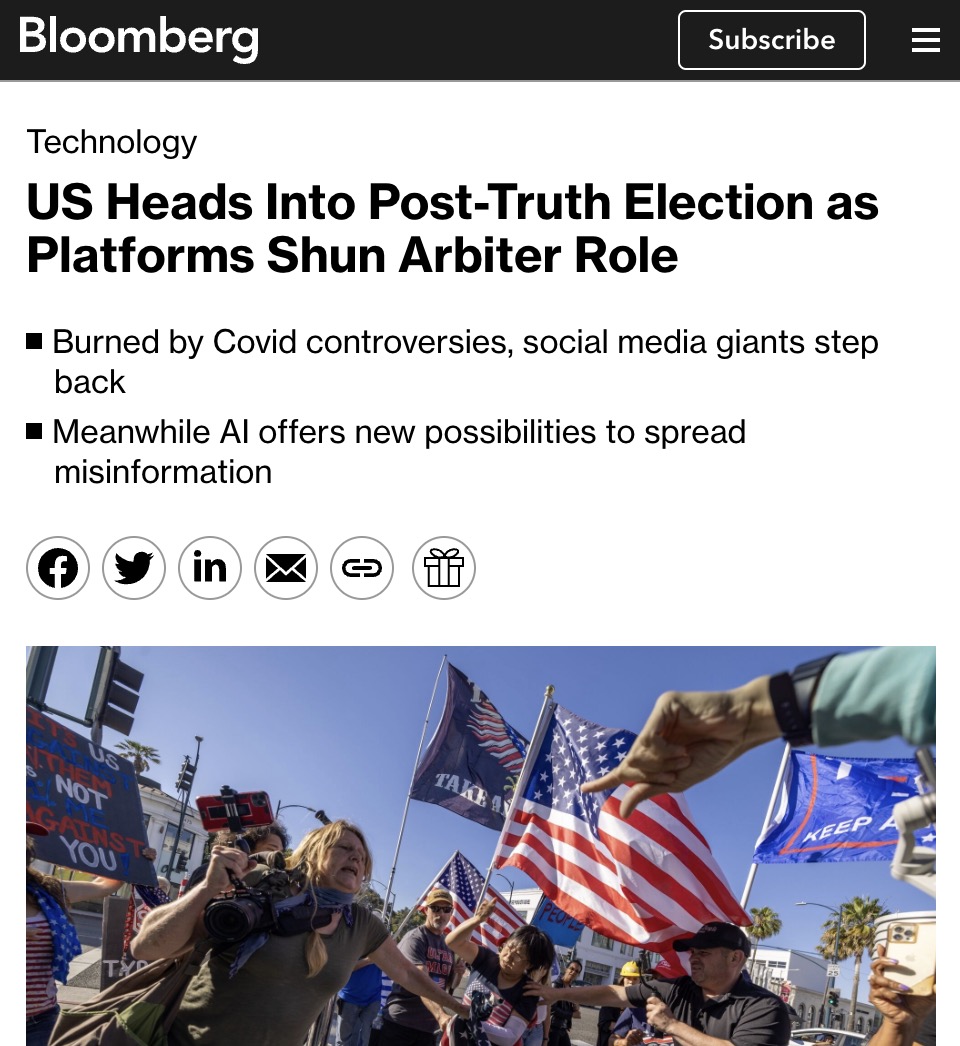As all physical roads lead to Rome – so all political and media ones truly lead to the US presidential election. And over the past eight years, the stakes have been getting ever higher.
Some cynics will say for no other reason than the shocking 2016 Trump victory which left the establishment reeling and disoriented, then in feverish search of a “culprit,” openly challenging election integrity – seemingly culminating with the “Russian interference” conspiracy theory.
But over the years, relentless censorship of all manner of “legal but dissenting,” let’s put it that way, opinions on social networks have also become the new normal.
It’s a fairly safe bet that even back in 2016 a corporate legacy media like Bloomberg would have trouble advocating for social sites – susceptible to all kinds of political pressure – as “arbiters (of speech).”
But now after long years of these platforms playing an appropriated, likely illegal role, the words just roll out. And it’s “out of concern” for democracy, apparently.
“US Heads Into Post-Truth Election as Platforms Shun Arbiter Role,” a headline on a Bloomberg piece spells it out.

Excuse us? Who died and made social platforms any kind of arbiter of speech?
And didn’t “post-truth” happen precisely as these platforms and their power over third-party content got elevated to the “arbiters of truth” in the last few years?
None of the arguments, when summed up and examined on logical grounds, make sense. But that’s not what Bloomberg is out to do now – it’s to make an immediate impact on a susceptible audience. And leave it at that.
There is nothing we haven’t already heard as if the authors stick to the same playbook: allegedly there’s more “disinformation” than ever; the “AI” is “a real and present danger” – and Elon Musk is just crazy for opening his platform to free speech.
What’s somewhat differentiating here – although, is it really? – is a sense that since X won’t get fully reined in time for the US election, even more pressure must be heaped onto other major platforms.
“(…) Other platforms are also changing their approach to monitoring,” writes Bloomberg, whose reporters’ text editors must be falsely replacing “censorship” with “monitoring.”
“Meta Platforms Inc. has sought to downplay news and political content on Facebook, Instagram, and its new struggling Threads app. Google’s YouTube has decided that purging falsehoods about the 2020 election restricts too much political speech (Meta has a similar policy),” says the article.
Are those mentioned really bent on censoring less, this time around? Highly doubtful.






















